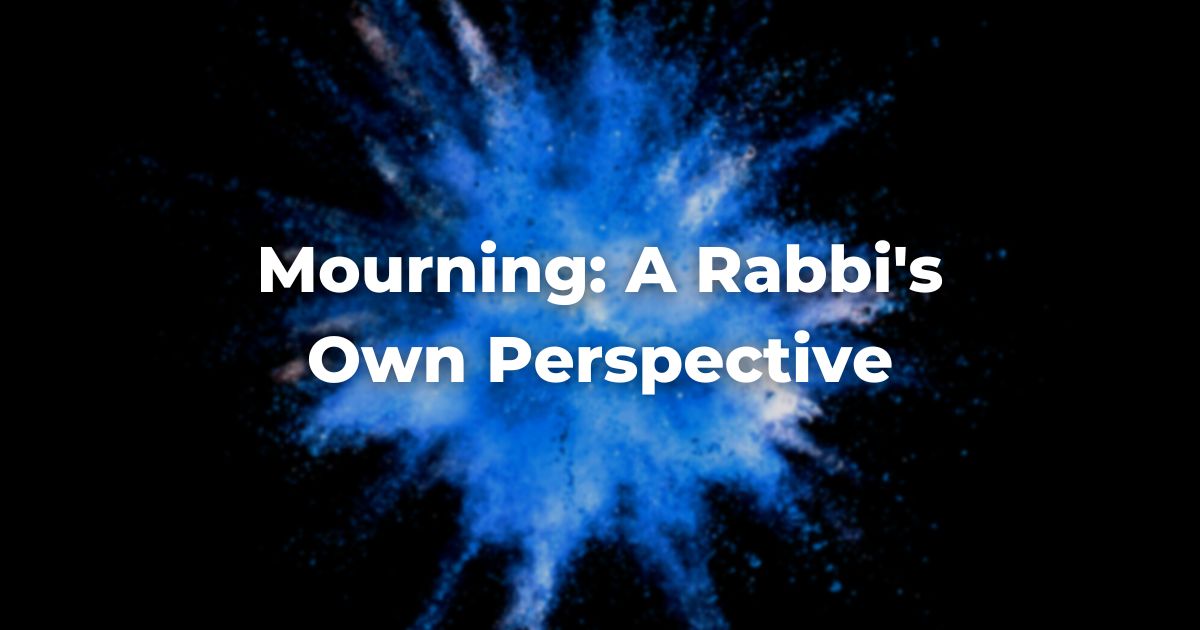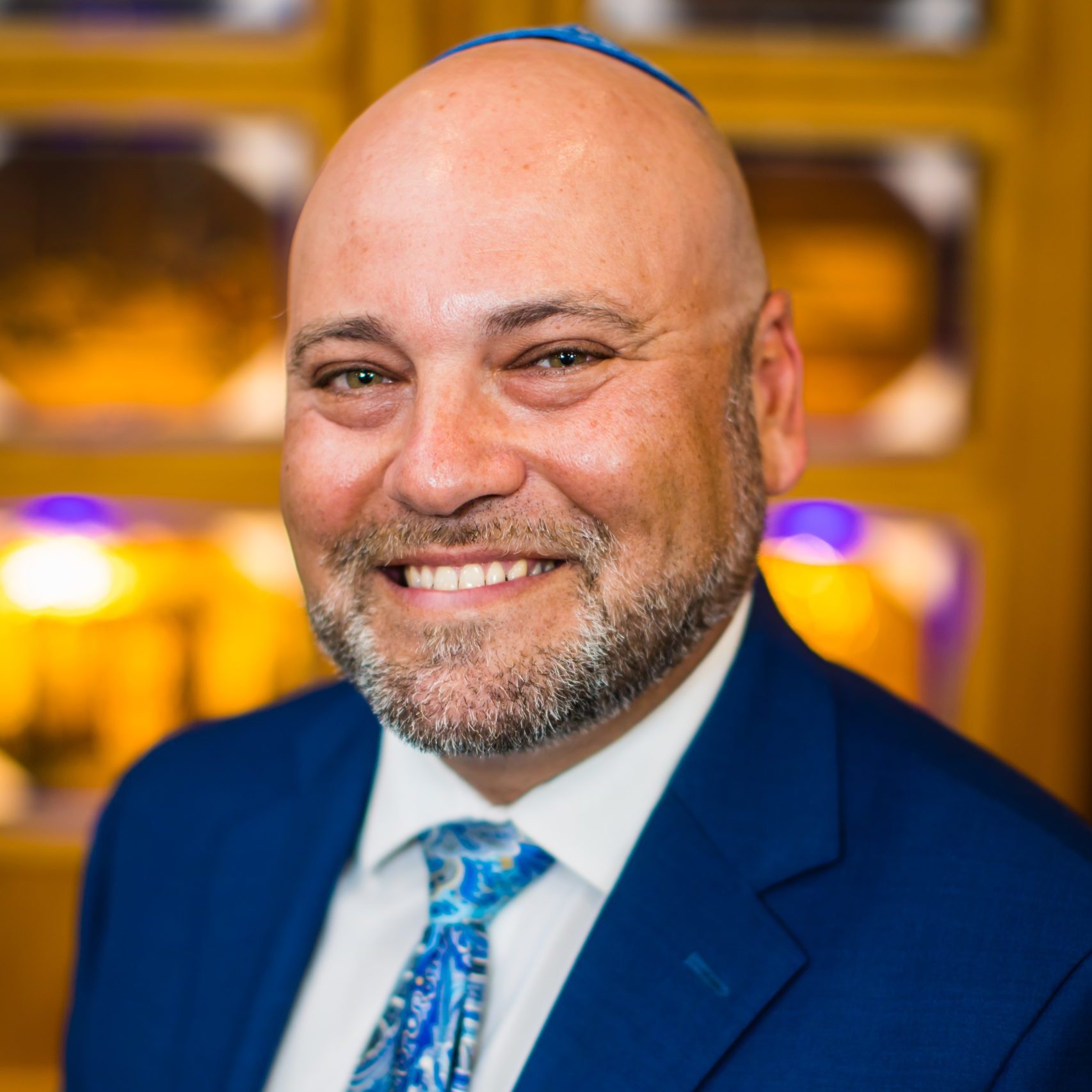My journey to mourning began on the saddest day of the year, Tisha B’av, when we mourn national destruction.
The previous evening, I taught a lesson on theology and how Jewish thought makes sense of evil in the world at our shul. It came down to a profound test of faith: how can we accept a God who is omnipotent, omniscient, and good despite the tragedies we have faced in our history?
The next morning, our congregation held a joint service with another Conservative synagogue for the Tisha B’av service where I was supposed to read Torah and Haftarah.
Beginning to Mourn
That morning, our mother texted us that she had received word that after being on the lung transplant list for a week, they had unexpectedly found a match for her and she was beginning to prepare for surgery. She told us not to rush down because it will take some time. I walked into Tisha B’av services with a joy I hadn’t felt since our son was born on the 7th of Av.
During Shacharit, I received a call from my brother. I could hear him weeping on the phone and felt the worst. Our joy and hope turned into loss and despair as our mother had taken her final breaths.
I walked back into the chapel with a face of tears, handed my TorahRefers to the first five books of the Hebrew Bible, the Tanakh, also called the Five Books of Moses, Pentateuch or the Hebrew equivalent, Humash. This is also called the Written Torah. The term may also refer to teachings that expound on Jewish tradition. Read more and Haftarah reading to a colleague I was sitting next to, and walked out in a daze, not knowing exactly what to do. I saw my mother’s rabbi and teacher from their previous congregation immediately. I told him what had happened, and he embraced me with kindness and love.
I picked up my sister from her home, crying on each other in the car, and headed down to Miami to see our mother in the hospital. We received so many calls and texts on the way down; word was traveling swiftly. At first, we tried to answer phone calls but were too shocked and dismayed to speak coherently.
At the hospital, my mother was surrounded by her loving husband of fifty years, her three children, her siblings, and their spouses.
For the first time in a long time, she didn’t have oxygen flowing into her to help her breathe, she wasn’t gasping for breath, and she wasn’t coughing. She was at peace. I cried over her, held her hand, and kissed her. Even though she had already passed, we prayed for her.
The next days were some of the worst of my life, but also the most meaningful.
Our original nuclear family began its journey as a family of four for the first time since 1987 when our sister was born, but its end came on the 9th of Av thirty-six years later. Thirty-six years later, we were surrounded by the love of new souls, spouses, and children, who joined our family since my sister was born.
The funeral was brutal and beautiful. Shiva was a blur, but we felt the love and support from so many family, friends, and community members in South Florida and beyond.
Learning from Loved Ones, Even in Death
My mother did not share her wisdom through stories and pithy quotes, but she often shared a teaching from her father. As an immigrant family, they had very little in terms of material things. He would often say, “worry about your own money; don’t worry about others.” She expanded on this in her life. She would often say, you don’t know what is happening behind the closed door of a family’s home. They may seem perfect behind a gilded house of gold, but they could be suffering inside.
It was an expansion of the well-known teaching from Avot 4:1: Who is wealthy? One who is content with his or her portion in life. During that week, I didn’t think once about who wasn’t present or who did not reach out to pay their condolences, rather, I focused on who was with us during the most difficult time in our lives.
Shiva was a surreal process. I knew our Sages were immeasurably wise, but I experienced it myself sitting shiva as a mourner, and taking on the restrictions imposed on our lives.
My mother taught us lessons not just in speech, but more importantly, in deed. She lived out kindness in a way that she never wanted anyone to see. She performed so many acts of true hesedThere is no perfect translation, but is generally defined as “loving-kindness.” When we act with Hesed, we are doing Gemilut Hasadim. Also spelled: chesed Read more in her life that we are just now learning about through the stories people have told us at shiva. She never bragged about her many accomplishments, except maybe her family whom she often posted about on social media.
Through this experience of ups and downs, I recalled a teaching from the 17th Hasidic master, Rabbi Menachem Nachum of Chernobyl (1730-1797) who wrote the following in his work, Me’or Eynayim:
“The truth is that human beings cannot remain on a particular rung with constancy, since “the life-force ebbs and flows” (cf. Ezek. 1:14); it comes and disappears. When you are attached to God, you feel the pleasure of that surge of life. But then it vanishes and you fall from your rung.
Why does a person have to fall? The meaning of this contains secrets of Torah. One of these is the possibility of attaining a yet higher rung than one had previously reached. Every being is preceded by a non-being. When you want to proceed to a higher rung, you need to lack for something first. Therefore you have to fall from your prior rung.
When you are in such a fallen state, you still need to struggle to rise up to God within your current existence. You need to have faith that “the whole earth is filled with God’s glory” (Is. 6:3) and “there is no place devoid of God.” God is there in your present state of being, though in highly reduced form…”
Seeing God While in Mourning
Throughout the period of aninut (period after the death of a close relative but before burial) and aveilut (formal mourning), I felt the presence of God, and my mother’s soul: in the embrace of family, friends, and colleagues, in the food we’d been served, in the tears we had shed and the rare laughs.
But there were other places as well.
On Shabbat morning, I witnessed a beautiful scene. We open our spiritual home, Congregation Shaarei Kodesh, for members of the JARC community, a local home for Jewish intellectually and physically challenged adults, on Shabbat. Two older men from JARC were sitting next to each other and one man couldn’t bend over to tie his own shoes. His friend, who sat next to him, bent down and tied his shoes for him without even being asked.
I saw it in my son’s camp counselor from Camp Ramah, an 18-year-old entering college student, who paid a shiva visit to comfort us and our sons. I saw it in the 12-year-old bat mitzvah girl who insisted that she attend a shiva minyan to comfort her rabbi and his family. I learned why the name for God that we use during shiva is “HaMakom”/the Place.
I want to live in that world, in that place; a world of kindness where we perform these acts without the need to be recognized by the world in a social media post.
I want to live in the world that my mother created for us—a world of joy, justice, strength, love, humility, and kindness.
Author
-

Rabbi David Baum has served as the first full-time Rabbi of Congregation Shaarei Kodesh of Boca Raton since the summer of 2009. He received his rabbinical ordination and his Master’s Degree in Jewish Education from The Jewish Theological Seminary in May 2009. Rabbi Baum is the immediate past President of the Palm Beach County Board of Rabbis and past president of the Southeast Region of the Rabbinical Assembly. He is an alumnus of the Clergy Leadership Incubator (CLI) Fellowship and a Global Justice Fellow with American Jewish World Services. He lives in Boca Raton with his wife, Dr. Alissa Baum, and their three children, Avi, Harrison and Layla.
View all posts






